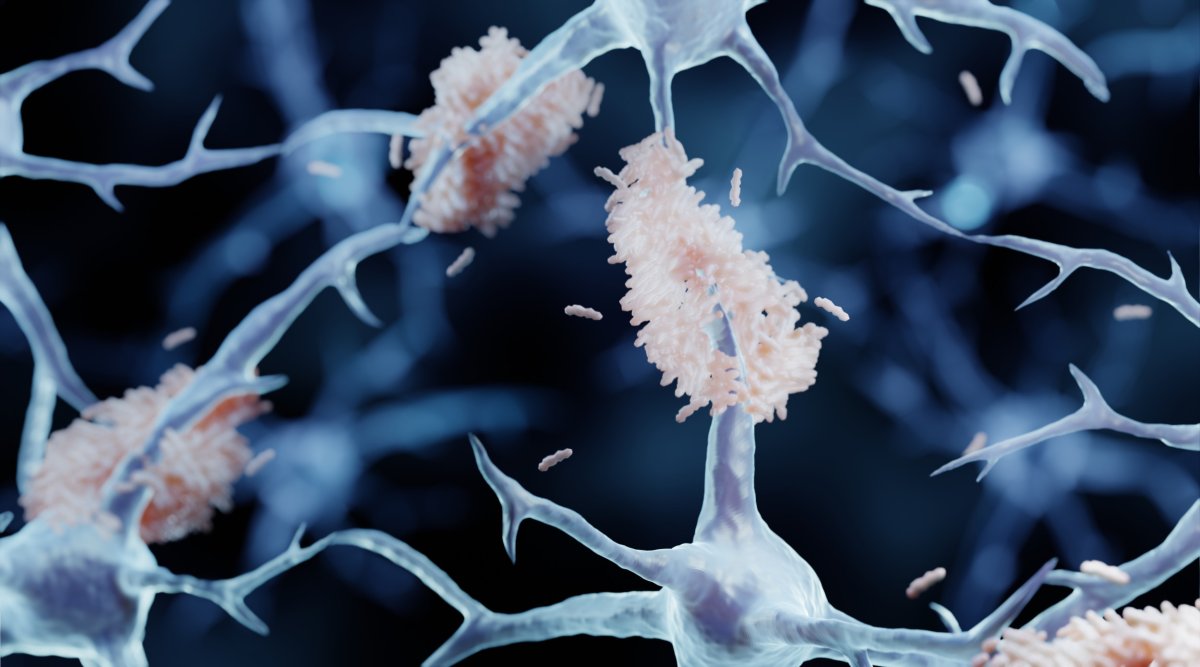Eating well in middle age may help to prevent the arrival of dementia, a new study has found.
Women who were on blood pressure-lowering diets in middle age were found to be around 17 percent less likely to show signs of cognitive decline and memory loss in later life. This diet is known as "Dietary Approaches to Stop Hypertension", or a DASH diet. It includes high consumption of plant-based foods rich in potassium, calcium and magnesium, and low in saturated fat, cholesterol, sodium and sugar.
"Many essential nutrients that are abundant in vegetables, fruits, legumes, and nuts have anti-inflammatory and antioxidant properties that can reduce blood pressure and improve neuronal connectivity (brain health)," Yu Chen, a professor of population health at NYU Grossman School of Medicine in New York and senior author of the study, told Newsweek.
Alzheimer's disease affects the brain, eventually leading to the development of dementia. The exact reasons that Alzheimer's develops is still unclear, but scientists have figured out that the disease is associated with the build-up of proteins called amyloid and tau. These may clump up into structures called plaques and tangles, affecting the brain's functions. Around 5.8 million adults live with Alzheimer's disease and other dementias in the U.S., according to the U.S. Centers for Disease Control and Prevention.
The new study findings, published in the journal Alzheimer's & Dementia, are significant as women make up over two-thirds of people with Alzheimer's disease, one of the most-common forms of dementia.
"Subjective complaints about daily cognitive performance are early predictors of more serious neurocognitive disorders such as Alzheimer's," Chen said in a statement. "With more than 30 years' follow-up, we found that the stronger the adherence to a DASH diet in midlife, the less likely women are to report cognitive issues much later in life."

Women are more commonly diagnosed with Alzheimer's. However, this is likely because they tend to live longer than men, and older age is the largest risk factor for the disease, according to the U.K. Alzheimer's Society.
The researchers told how they used data from the NYU Women's Health Study, a long-running study of over 14,000 women examining lifestyle and the development of medical conditions. The authors looked into the diet of 5,116 women from the study, analyzing the dietary habits of the women between 1985 and 1991, when they were around 49 years old, on average. The researchers then followed these women's progress for the next 30 years to see how medical conditions developed with age.
On the questionnaire given to the women as part of the study, there were six questions given that looked into cognitive issues, a precursor to dementia. These questions regarded difficulties in remembering recent events, struggling to understand spoken instruction, or forgetting how to navigate familiar areas.
"[These questions were:] (1) recent change in the ability to remember things; (2) difficulty remembering recent events; (3) difficulty remembering a short list of items, such as a shopping list; (4) difficulty understanding or following spoken instructions; (5) difficulty following a group conversation or a plot in a TV program; (6) difficulty navigating familiar streets," Chen explained.

Thirty-three percent of the women reported having more than one of the six cognitive difficulties, but those who ate closest to a DASH diet in middle age were 17 percent less likely to report multiple issues.
"Our findings indicate that it is important to start adopting a heart-healthy diet in midlife, which can be beneficial not only for cardiovascular health but also for brain health for the years to come!" Chen said.
The authors hope to further look into how this differs across varying racial and ethnic groups to figure out how general this association is.
Do you have a science story to share with Newsweek? Do you have a question about dementia? Let us know via science@newsweek.com.
Update 10/20/23, 11:39 a.m. ET: This article was updated with comment from Yu Chen.
Uncommon Knowledge
Newsweek is committed to challenging conventional wisdom and finding connections in the search for common ground.
Newsweek is committed to challenging conventional wisdom and finding connections in the search for common ground.
About the writer
Jess Thomson is a Newsweek Science Reporter based in London UK. Her focus is reporting on science, technology and healthcare. ... Read more
To read how Newsweek uses AI as a newsroom tool, Click here.






